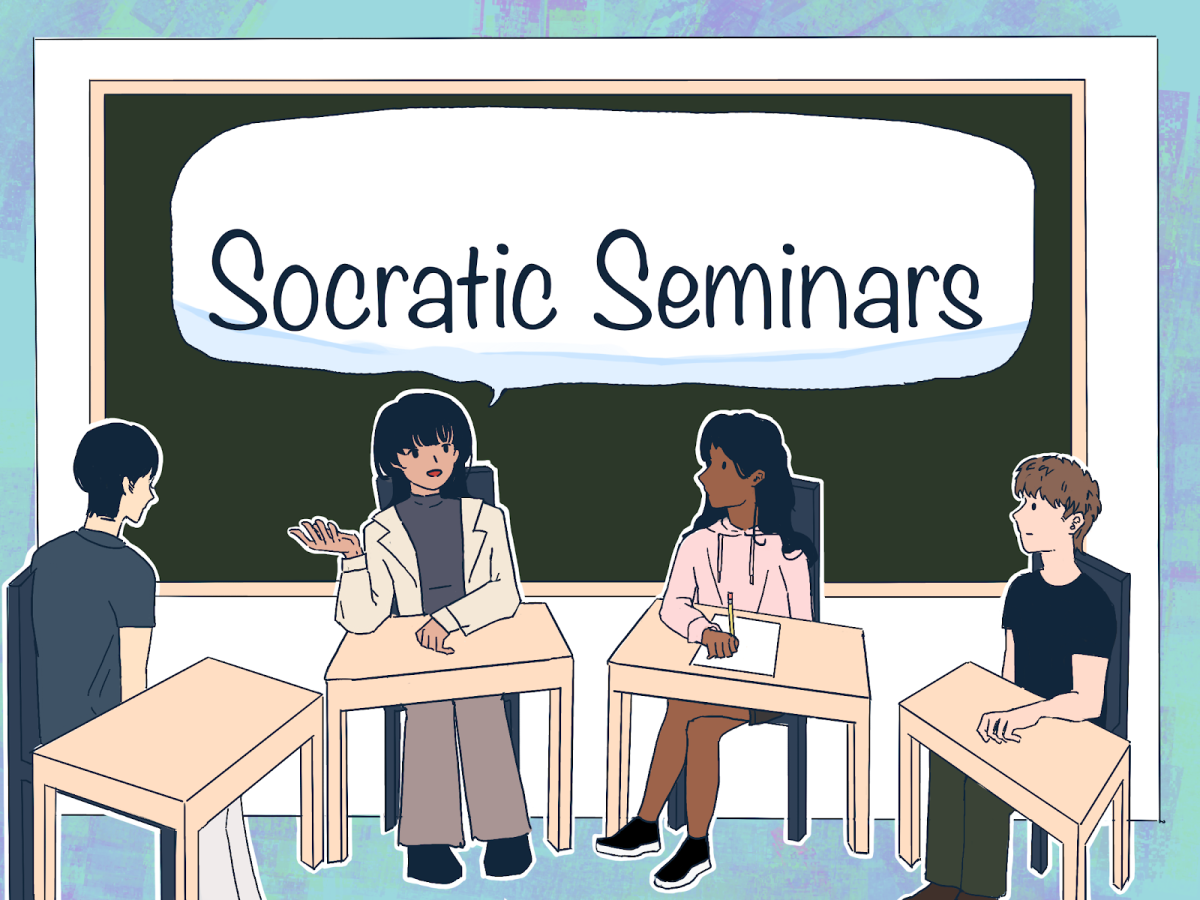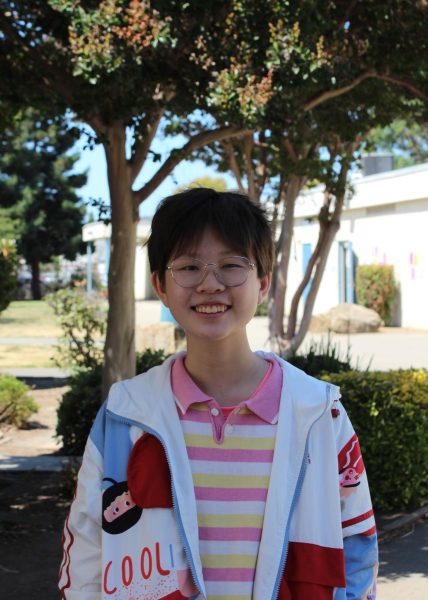Being Irvington students, we get stressed on a lot of things — from building relationships to studying for exams. Sometimes we find ourselves with that “good stress” and motivate ourselves to try our best to succeed, but more often we find ourselves with “bad stress” — especially if we have four tests the upcoming week … and an essay.
As more schools and school districts turn to social-emotional models of learning, many classrooms are moving away from tests and onto more interactive forms of assessment. Many English classrooms today opt for Socratic seminars — a type of “formal discussion, based on a text, in which the leader asks open-ended questions” according to Read Write Think. While Socratic Seminars have their flaws, they teach literary and cultural analysis better than written exams because of their effectiveness in preparing students for college, their careers, and the real world awaiting them.
For starters, Socratic seminars develop many learning skills that colleges will put to the test. According to researchers at California State University Monterey Bay, Socratic seminars develop students’ understanding of how “preparing nurtures critical thinking” while facilitating the interaction of multiple perspectives. This skill will be crucial as we head towards an interdisciplinary future — with mathematicians and graphic artists collaborating to write new textbooks, writers working with social media to deliver information faster, and much more.
While the traditional written exam also develops students’ ability to recall from memory, these skills aren’t always useful in their careers. The truth is in real life, professionals do tend to forget things, which is fine! When software engineers forget how to write code for their program, they can always Google it or ask questions on forums like Stack Overflow. When it comes to court cases, even lawyers have the exact wording of laws right by their side for reference in case they forget.
In addition, Socratic seminars are an excellent way to introduce students to social injustices in broader society as this type of healthy discourse allows students to engage with and learn about topics about racial, gender, and other injustices. Compared to simply reading about these social issues in print or digital mediums, students in Socratic seminars get to use the most common medium people for communicating these topics — in-person conversations. From these conversations, an interview from the Illinois Civics Hub observed results from a Socratic seminar that indicated them as “very helpful” for students to “build their knowledge up and have meaningful conversations instead of worrying about choosing sides or persuading others to join in.”
On top of introducing students to social injustices, researchers have also found Socratic seminars to be a good method of directly addressing certain injustices. Compared to written exams, these seminars are more effective in instructing neurodiverse students — specifically those with diagnosed Autism Spectrum Disorders. While students with ASD may require extra support in structured conversations and interactions, a study by the Dialogic Pedagogy Journal found that current methods “include little to no systemic use of dialogue as a pedagogical means of scaffolding students’ abilities.” In light of this, the healthy discussion Socratic seminars offer may perfectly be the type of dialogue these students need.
Still, Socratic seminars are double-edged swords. As Edutopia puts it, “The beauty — and the challenge — of the Socratic seminar is that it relies on the dynamics of the group.” Some groups may be completely terrified to even speak up if public speaking is not something they are comfortable with. It could be unfair to mark these students down for not speaking, especially if their nervousness is tied to health-related conditions. But if students are more competitive, they may turn the discussions into debates, which is completely counterintuitive to the collaborative goals these seminars aim to achieve. This competitiveness can also make the group less open-minded, as participants may be extra insistent on clinging onto their prior beliefs and tune out all opinions they dissent with.
Yet despite these flaws, more and more teachers are incorporating Socratic seminars into their curriculum in light of their learning benefits. In its essence, the discussion and social awareness skills Socratic seminars offer allow students to come into college and the job market confident and prepared to excel in communicating with others. And hey, who doesn’t want to be successful?
So the next time your English teacher puts Socratic seminars on the calendar after finishing up a novel, be glad, and look at the opportunity with some “good stress” instead!












